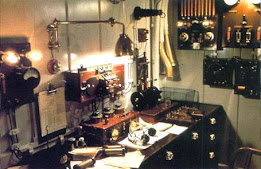TIME Magazine's Man of the Year was named the computer in 1982. It's not surprising that in 2025, society's relationship with technology is seeing every side of good, bad, and ugly.
Technology advancements have endless benefits that create a healthy relationship with society. The general development of information sharing is incredible. Information is quick to travel, which is beneficial in many ways, especially in terms of safety and news. Having information readily available allows the public to be well informed, liberating our freedom of the First Amendment. Tech advancements have made room for increased innovation, making life-saving medical achievements, and being a resource to uplift careers.
The Pew Research Center has done extensive research about society's relationship to technology. They found that most people believe technology has a positive effect on their lives and society. Personally, my favorite part about technology is the communication connections. Technology and social media make it so easy for me to keep in close contact with family and friends, even if I'm thousands of miles away. In fact, most participants from Pew Research highlighted that their favorite part about technology is the easy connection it brings. I enjoy communicating through phone calls and texting, but I also enjoy social media platforms such as Instagram, Snapchat, and TikTok. These platforms are a fun and creative way to share photos, experiences, and communicate with family and friends. I also enjoy receiving news, knowledge, and new information from social media. Word travels fast online, and it's easily accessible for those with busy lifestyles. My relationship with social media is a healthy one, but many others feel the opposite.
A major contribution to an unhealthy relationship with technology is social media. The creation of social media came with cyberbullying and low self-image. It's common for teenagers to compare themselves to online posts, which are usually very edited and fake. Studies have shown that social media has a powerful effect on the brain, and it can create stimulating effects similar to addiction. Dr Nancy Brooks, the director of behavioral health, explains how "Social media platforms drive surges of dopamine to the brain to keep consumers coming back over and over again. The shares, likes, and comments on these platforms trigger the brain’s reward center, resulting in a high similar to the one people feel when gambling or using drugs." This is a problem in society, especially amongst teens whose brains are still developing. Attention span issues are another problem with society being chronically online. This makes focusing and multitasking very difficult.

















